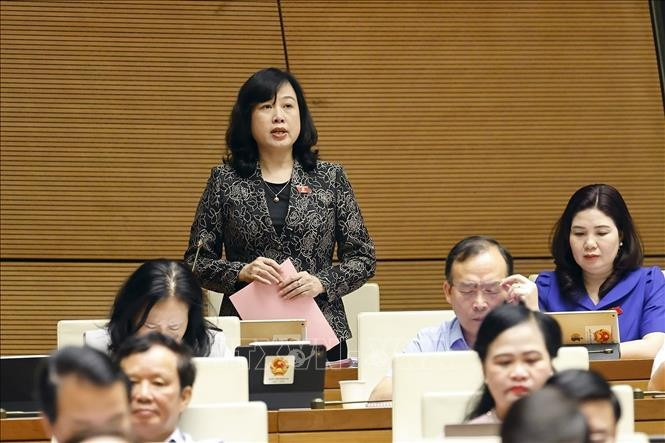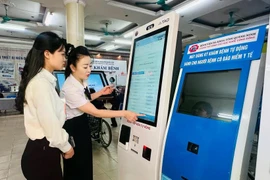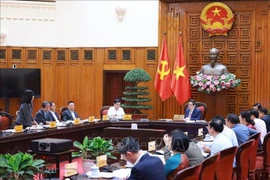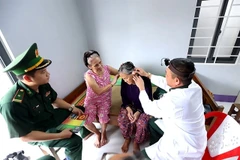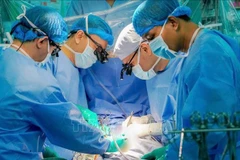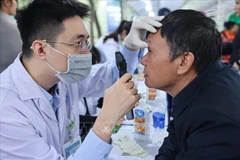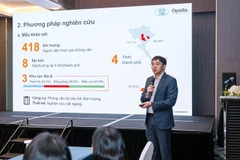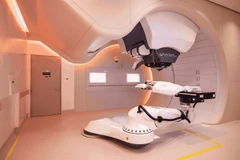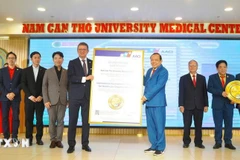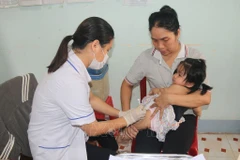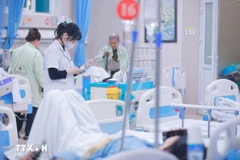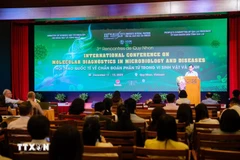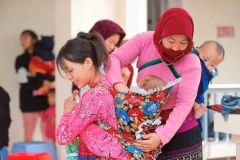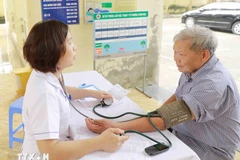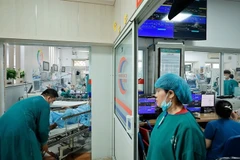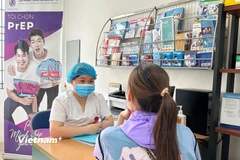Hanoi (VNA) – Amidst recent scandals involving counterfeit medicines and dietary supplements, Minister of Health Dao Hong Lan affirmed on June 18 that no fake drugs have been detected in hospitals.
She said that through bidding, all drugs entering hospitals must have a clear origin, so counterfeit drugs are only in the market, not in hospitals. The ministry is closely coordinating with the National Steering Committee for Anti-smuggling, Counterfeit Goods and Trade Fraud (National Steering Committee 389), relevant ministries and agencies in managing and preventing counterfeit drugs and fake foods.
The three recent cases involving counterfeit drugs found in Thanh Hoa, Kera vegetable candy or counterfeit cosmetics in Dong Nai were all discovered by the Ministry of Health. The ministry coordinated with the Ministry of Public Security in investigation, demonstrating its determination in preventing and combating counterfeit drugs and dietary supplements, Lan stressed.
At the National Assembly (NA)’s discussion on the socio-economic development plan, she also clarified issues that legislators raised concerns about, for example, medical examination and treatment; fake drugs and dietary supplements; and violence against health workers.
Lan said that the health sector has focused on many solutions to improve quality of grassroots healthcare.
Accordingly, laws such as Law on Medical Examination and Treatment (amended); Law on amending and supplementing a number of articles of the Law on Health Insurance; Law on amending and supplementing a number of articles of the Law on Pharmacy, and regulations on bidding for the procurement of medical equipment, supplies, medicines are prioritised to develop.
Regarding improving the quality of medical examination and treatment, the minister said that the professional capacity gap among hospitals at different levels and regions has resulted in overloads at central hospitals.
The health ministry is focusing on reviewing regulations and procedures, and applying information technology and digital transformation to reduce people's waiting time, facilitating online booking; conducting remote medical examination and treatment; strengthening central-level hospitals' assistance to lower-level ones; and improving equipment and facilities.
Regarding the development and improvement of the grassroots health care and primary health care system to ensure consistency with the operation of two-level local government model, Lan said that the ministry is focusing on perfecting mechanisms and legal policies; developing a national target programme for people's health care, building resolutions with breakthrough policies to improve the quality of primary health care and preventive medicine.
Regarding the issue of hospital autonomy, the minister stated that currently, the calculation of service prices only includes direct costs and salaries, not including management costs and technology application. The ministry is proposing the Government allow the implementation of correct and sufficient cost calculation, gradually removing difficulties for medical facilities to implement autonomy.
Regarding violence against medical workers, Lan said that there are regulations prohibiting acts that harm medical staff and medical examination and treatment facilities, but incidents still occured in several hospitals.
In such cases, the health ministry directly contacted the local authorities to request proper handling, she said, emphasising that medical workers must be protected in any case./.
